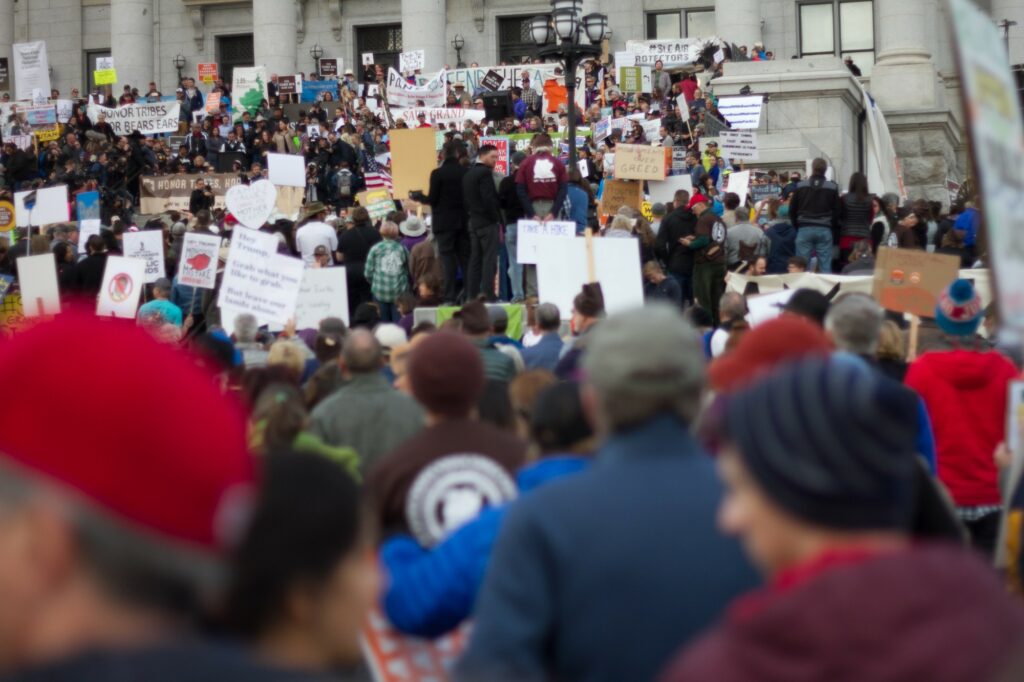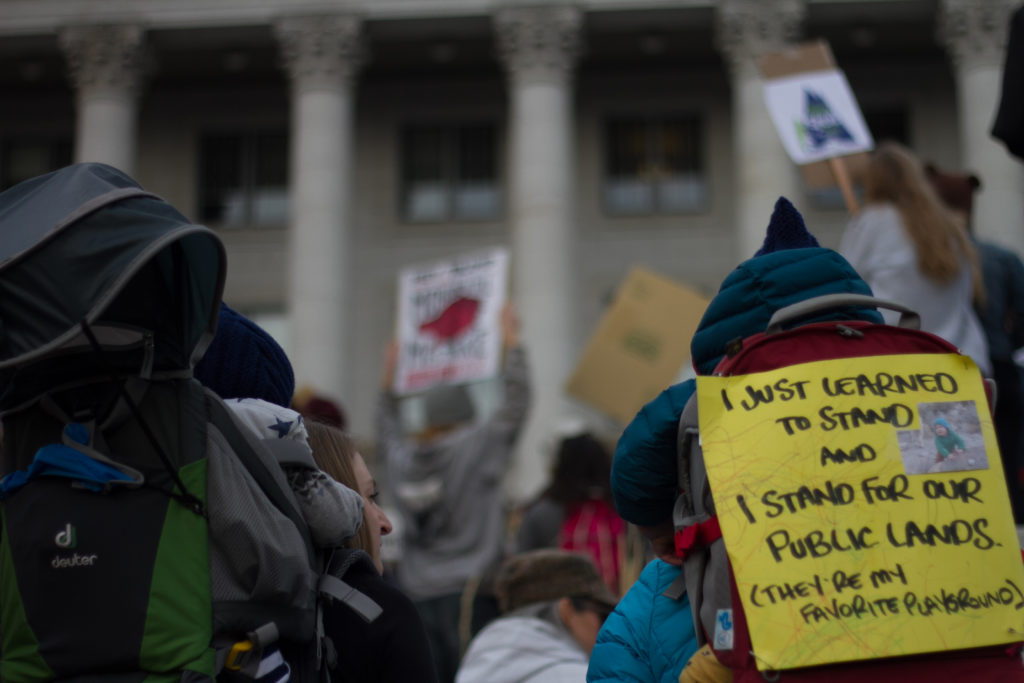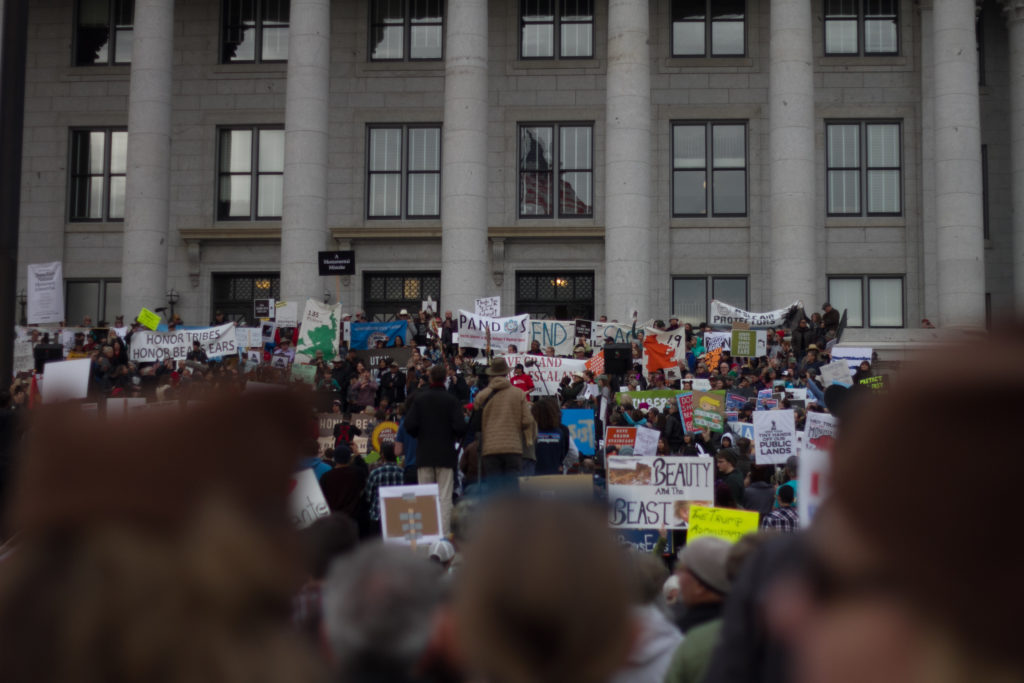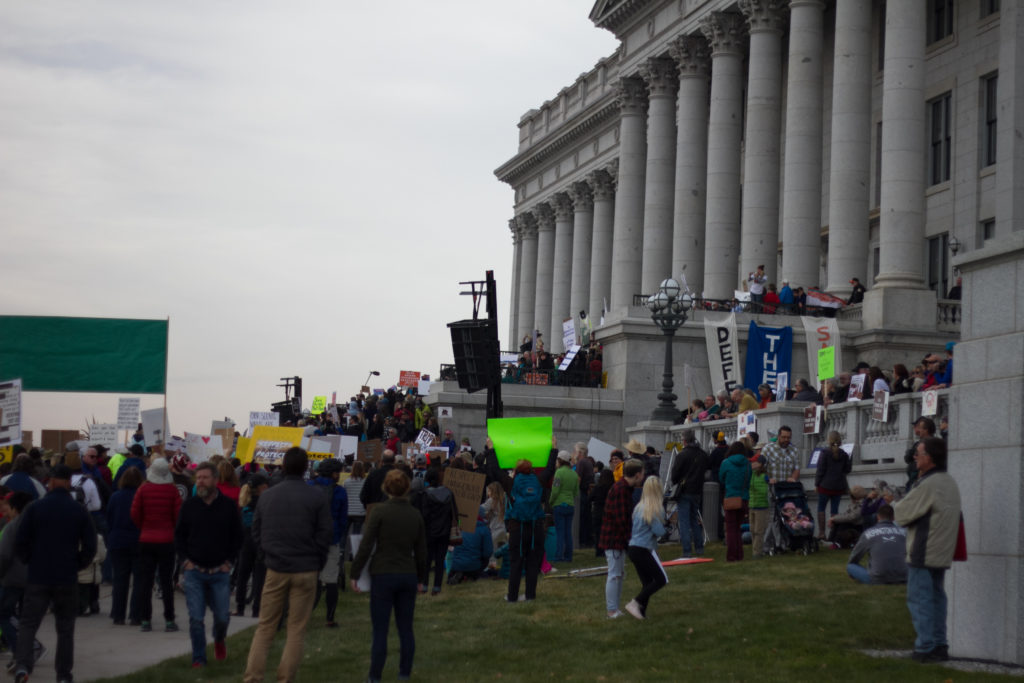
Social media feeds erupted with news after President Trump issued an executive order to shrink two national monuments in Utah and that he would be visiting the state’s capitol on Dec. 4.
Almost immediately, questions and accusations arose regarding the legal logistics of an attack on public lands — monuments especially — and hyperbole and rhetoric has driven public discourse.
An impassioned crowd of nearly 5,000 swarmed Utah’s capitol on Dec. 2 in a “Rally against Trump’s Monumental Mistake.” On Dec. 4, protesters converged along the the capitol perimeter and alongside the presidential motorcade’s route from Salt Lake International Airport.

Within hours of the monument announcement, The Wilderness Society, along with nine other co-plaintiffs including Southern Utah Wilderness Alliance, filed a suit challenging Trump’s decision.
After Trump’s announcement at the capitol building, industry brand Patagonia changed their website’s home page to a black background and a message in simple white letters: “The president stole your land.”
Patagonia founder Yvon Chouinard has taken a strong stance as an advocate for public lands. His company’s message has not minced words, and Patagonia is walking the walk, using their sway in the outdoor recreation economy to attempt to affect policy change.
Walking the line between public relations and advertising, Patagonia ran their first ever television commercial in August featuring Chouinard pointing the finger at “self-serving politicians who want to sell (public lands) off and make money.”
Without citing any details or specifics, Chouinard espoused the general sentiments of environmental and public lands activists that the current administration is bent on privatization for profits over access and preservation.

Trump claimed that by reducing the size of the Grand Staircase Escalante and Bears Ears National Monuments, he was preserving local populations’ rights and giving Native Americans back a “rightful voice over the sacred land.”
The president said families who have hunted and grazed cattle on open range will be able to preserve it now, accusing past administrations of abusing their authority in their use of the Antiquities Act.
According to AP fact checking, Trump’s assertions regarding monument management and use are misleading at best, and patently false at worse.
His lack of clarity could come down to his reliance on information from appointed Secretary of the Interior, Ryan Zinke.
At the outset of his tenure, Zinke ordered a review of 27 monuments to evaluate their compliance with his interpretation of the Antiquities Act. The review has yet to be published.
If it seemed like an outright assault on public lands, that’s because it was. The 2016 Republican Party platform was completely transparent when it came to their thoughts on public lands management: “Congress shall immediately pass universal legislation providing for a timely and orderly mechanism requiring the federal government to convey certain federally controlled public lands to states.”
Amid the misinformation and half-truths surrounding this issue, many opinions are as fierce as they are misinformed.
This reporter is looking deeper, farther, wider, speaking to lawyers and representatives who will be the players in the legal entanglement over these monuments. When printing of The Signpost resumes in spring semester, look for an in-depth assessment of what to expect in this divisive saga.




















